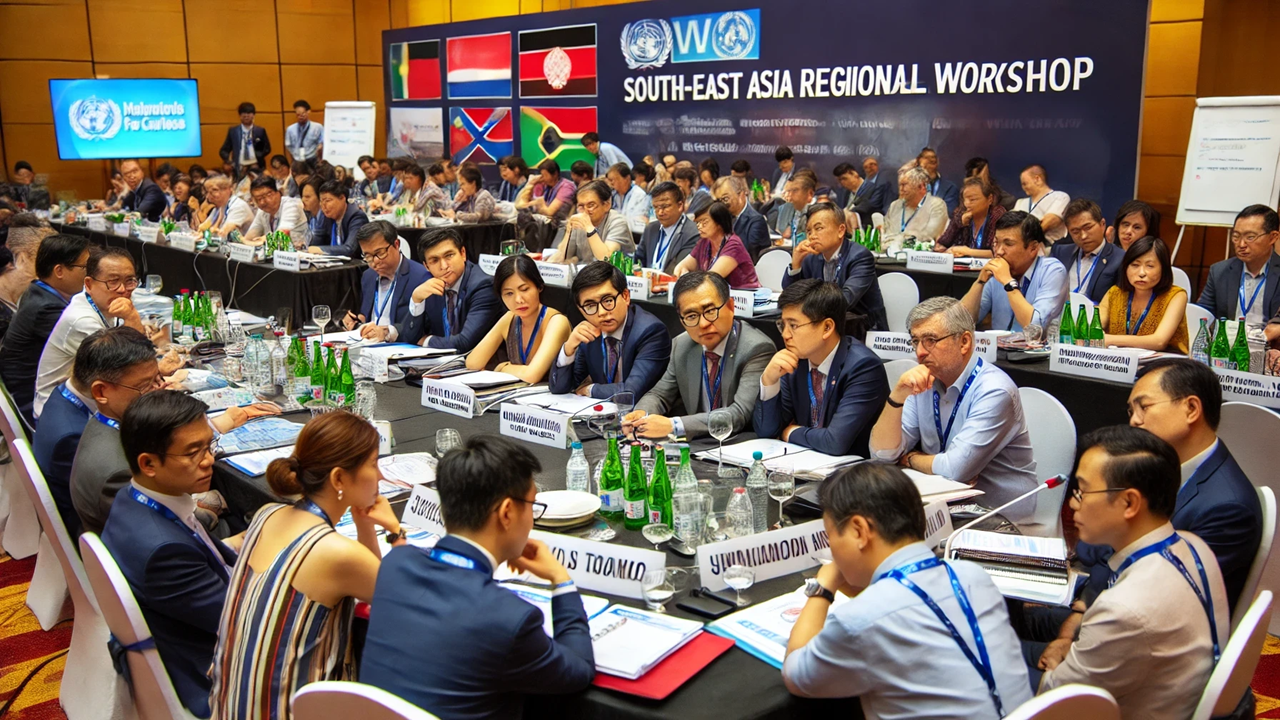Combating Illicit Tobacco Trade and Unrecorded Alcohol: A Regional Call to Action in South-East Asia
The WHO South-East Asia Regional Workshop held in June 2024 in Bangkok addressed the urgent need to combat illicit tobacco trade and unrecorded alcohol consumption. With a focus on sharing global best practices and enhancing regional cooperation, the workshop emphasized the importance of implementing track and trace mechanisms, expanding national quitlines, and fostering cross-border collaboration to protect public health.

A United Front Against Illicit Trade
In June 2024, a significant gathering took place in Bangkok, Thailand, where public health experts and policymakers from across Southeast Asia convened to tackle a pressing issue: the illicit trade in tobacco products and unrecorded alcohol. The World Health Organization (WHO) South-East Asia (SEA) Regional Workshop was a crucial step in addressing these challenges, which pose severe risks to public health across the region. The workshop highlighted the urgent need for coordinated efforts to curb these illicit activities, which contribute to noncommunicable diseases (NCDs) such as cancer, cardiovascular and respiratory diseases, and mental health disorders.
The SEA region, home to over a quarter of the global population, bears a disproportionate burden of tobacco-related illnesses, with approximately 4 million deaths annually attributed to tobacco use. Additionally, the region grapples with the harmful effects of unrecorded alcohol consumption, which not only endangers health but also exacerbates social issues such as domestic violence and economic instability. Recognizing these challenges, the workshop sought to strengthen the capacity of SEA countries to implement effective measures against these threats.
Sharing Knowledge and Strategies
The workshop brought together a diverse group of participants, including representatives from WHO, government agencies, and international organizations. Through a series of technical sessions and presentations, attendees shared global best practices and the latest evidence on combating illicit tobacco trade and unrecorded alcohol consumption. The discussions were not just about exchanging information but also about exploring practical solutions that could be adapted to the unique circumstances of each country in the region.
One of the critical areas of focus was the implementation of track and trace mechanisms for tobacco products. Such systems are vital for monitoring the supply chain and preventing illicit trade. However, the workshop revealed that while some countries like Sri Lanka have made progress in this area, many others still lack the necessary infrastructure. The need for comprehensive strategies, including the integration of technology and stronger governance, was emphasized as essential for combating the sophisticated networks involved in illicit trade.
Another significant topic was the expansion of national quitlines to include services for alcohol and substance abuse. The idea of “integrated” quitlines was proposed, allowing countries to provide more comprehensive support to individuals struggling with addiction. Thailand, a leader in this field, shared its experience with integrated quitlines, offering valuable insights into the potential benefits and challenges of such an approach.
A Call for Regional Cooperation
One of the workshop's most crucial outcomes was the recognition that regional cooperation is indispensable in the fight against illicit trade. Participants underscored the need for countries to become Parties to the WHO Protocol to Eliminate Illicit Trade in Tobacco Products, a legal framework designed to secure the entire tobacco supply chain. Currently, only India and Sri Lanka have ratified this protocol, highlighting a significant gap that needs to be addressed urgently.
The workshop also called for greater collaboration between regional bodies such as the Regional Intelligence Liaison Office (RILO) and international organizations like the United Nations Office on Drugs and Crime (UNODC). Such partnerships are vital for sharing intelligence, enhancing enforcement capabilities, and ensuring that efforts to combat illicit trade are both coordinated and effective.
Looking Ahead: Research and Action
As the workshop concluded, participants agreed on the need for continued research and action. There is a pressing need to generate more data on the magnitude and impact of the illicit tobacco trade and unrecorded alcohol in the region. Understanding the economic and health costs associated with these activities will be crucial for designing effective interventions.
Moreover, the workshop highlighted the importance of operational research aimed at evaluating the effectiveness of various strategies, from fiscal policies to public health campaigns. By learning from both successes and failures, countries can refine their approaches and achieve better outcomes.
The discussions in Bangkok laid the groundwork for future collaborative efforts, with participants expressing hope that the recommendations from the workshop will lead to tangible improvements in public health across Southeast Asia. The fight against illicit tobacco trade and unrecorded alcohol is far from over, but with continued commitment and cooperation, there is a path forward.
- FIRST PUBLISHED IN:
- Devdiscourse
ALSO READ
Emerging Threats in South-East Asia: WHO Bulletin Highlights Rising Mpox Cases, Cholera, and Dengue
WHO Urges Swift Action on Road Safety in South-East Asia
WHO Urges Swift Action to Curb Road Traffic Deaths in South-East Asia
Rising Obesity: China's Emerging Public Health Crisis Amid Economic Changes
Racism Declared a Public Health Crisis: Progress and Challenges










